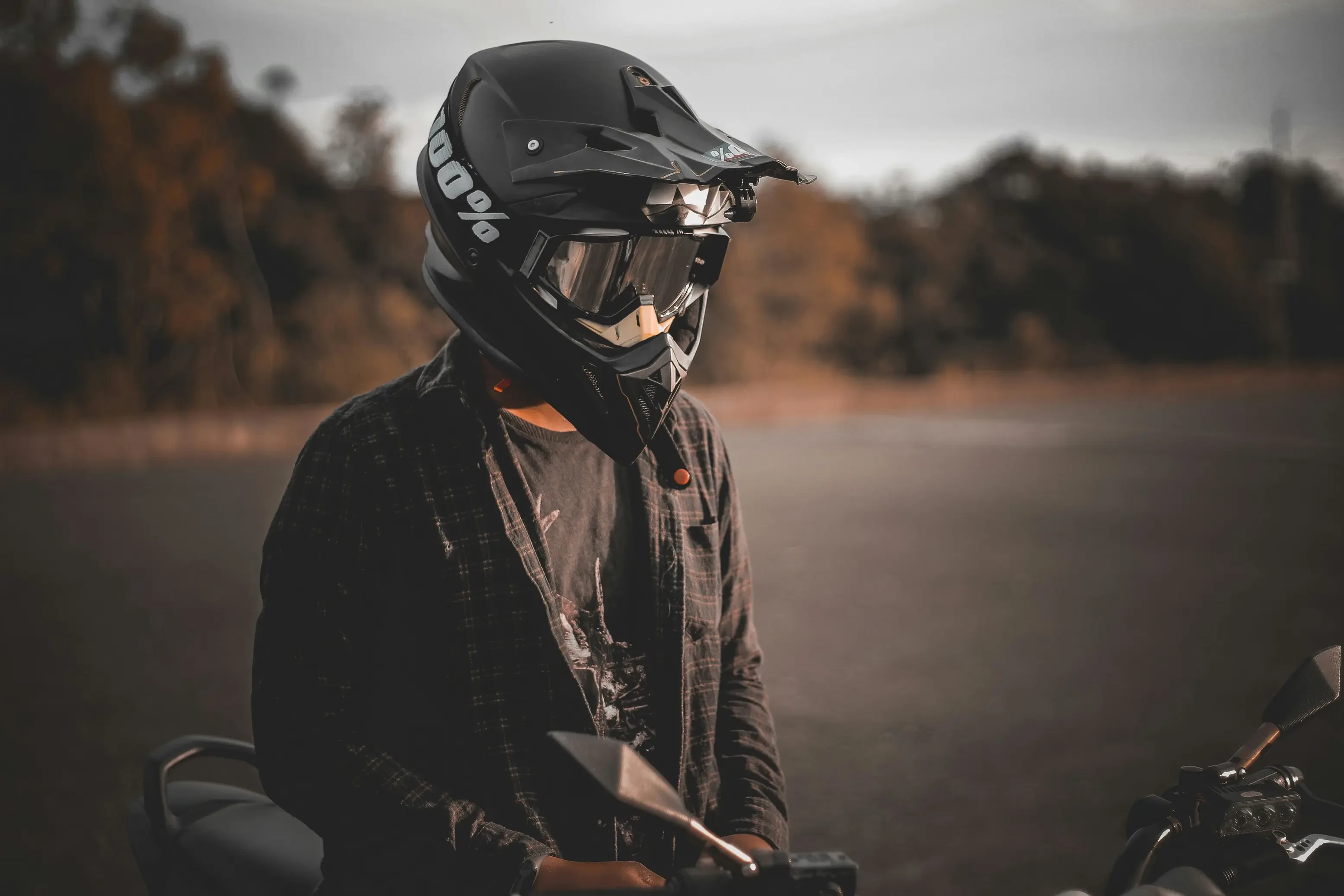Available 24/7
Se Habla Español
Free Case Evaluation
Evaluación gratuita de caso
(919) 438-0065

Understanding Helmets and Their Role in Injury Claims
Helmets are essential for safety in various activities, from cycling and motorcycling to construction and sports. While they play a vital role in preventing severe injuries, they also influence personal injury claims. In this blog, we’ll take a closer look at how helmets impact safety, liability, and compensation in injury cases.
Helmets are specifically designed to minimize the risk of traumatic brain injuries and skull fractures. For cyclists or motorcyclists, wearing a helmet can substantially reduce the chances of fatal head injuries during an accident. In sports or construction work, helmets also provide additional essential protection from high-impact collisions or from falling objects.
Studies constantly demonstrate that helmet use reduces the risk of head injuries by up to 70% for cyclists and motorcyclists. However, while helmets reduce injury severity, they do not prevent all injuries, which can complicate personal injury claims.
1. When a Victim Was Wearing a Helmet
If you were wearing a helmet at the time of the accident, it displays that you took reasonable caution for your safety. This strengthens your case by reducing any claims of contributory negligence.
· Example: In a bicycle accident caused by a reckless driver, wearing a helmet shows you acted responsibly. This makes it easier to hold the driver fully accountable for damages.
·
2. When a Victim Wasn’t Wearing a Helmet
If you weren’t wearing a helmet during the incident, the defendant’s legal team may have grounds to argue that your injuries were partially your fault.
· Not wearing a helmet gives grounds to the defense to argue that you contributed to your injures. States like North Carolina apply a strict contributory negligence law, meaning even if you’re slightly at faut, you may not be able to receive compensation.
There are 2 key considerations when cases involving helmets are evaluated:
1. Type of Injury
Helmets primarily protect against head injuries, but they don’t prevent all injuries. If your claim is pursuing compensation for spinal, neck, or other non-head-related injuries, helmet use is less likely to affect the outcome.
2. State Helmet Laws
Helmet laws vary by state, and these laws can influence injury claims. In North Carolina, all motorcyclists, cyclists, and passengers must wear a safety helmet.
To navigate the complexities of a personal injury claim involving helmet use, it’s important to work with an experienced attorney. They will help:
· Collect evidence to showcase your helmet use (or lack thereof) didn’t contribute to the severity of your injuries.
· Address legal defenses based on helmet laws or contributory negligence.
· Advocate for fair compensation, even in challenging cases.
Helmets are a vital safety tool, but their role in personal injury claims goes beyond protection. They can determine how liability and compensation are determined, especially when state helmet laws and negligence defenses come into play.
If you or a loved one has been injured in an accident, whether you were wearing a helmet or not, consulting with a knowledgeable attorney can make all the difference. At Paul Robinson Law, we’re here to help you understand your rights and pursue the justice you deserve. Contact us for a free consultation today!
Call Us At
919-438-0065
105 S Ellington St, Clayton, NC 27520
124 St Marys St Ste 201, Raleigh, NC 27605
800 W Williams St #250 Apex, NC 27502
Clayton Office:
Phone : 919-438-0065
Raleigh Office:
Phone : 919-471-3200
Apex Office:
Phone : (919) 944-4630
105 S Ellington St, Clayton, NC 27520
124 St Marys St Ste 201, Raleigh, NC 27605
800 W Williams St #250 Apex, NC 27502
Copyright @2026 The Law Offices Of Paul Robinson. All Rights Reserved.
This site is for information purposes only. No attorney-client relationship is created by use of this site. No legal advice is intended by its use. An attorney-client relationship is only created speaking to an attorney and signing a representation agreement.
By providing your phone number, you agree to receive text messages from Paul Robinson Law, PLLC. Message and data rates may apply. Message frequency varies.

